Braden Kelley wrote the following blog post on play and innovation.
A pioneer in research on play, Dr. Stuart Brown says humor, games, roughhousing, flirtation and fantasy are more than just fun. Plenty of play in childhood makes for happy, smart adults – and keeping it up can make us smarter at any age. Pascal Wattiaux (whom I met after writing the Gever Tulley article) recommended an article on play from the Brick Journal, Issue 6.
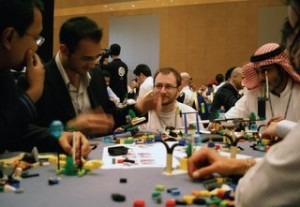
Lego Serious Play
The article recounts an adventure in the Middle East with LEGO’s Serious Play – a consulting method, pioneered by LEGO, that centers on play. The article highlights four Serious Play consulting companies coming together to work with the 300 incoming graduate students for the King Abdullah University of Science and Technology (KAUST) in Saudi Arabia. Here is an excerpt:
“The community building began with the students placed into teams and, led by Jens Hoffmann of Strategic Play, proceeded with the team members building LEGO models to represent themselves, their ideal teammate and what each individual would contribute to their team during the two day workshop. From there, the teams created a group model, with the team members building and writing about how their community could service society. While the models were challenging to think about, the students all were creative in their models and bonded while building the group model, with groups getting more and more animated in their discussions and building. Building was punctuated by comments and laughs as teams built different models and items. With a common goal, the teams began to bond, regardless of language and culture, and by the end of the day, each table had a shared model, a shared language and shared view of the world.”
So not only does play help to create happy, smart adults but it helps to create stronger emotional bonds and collaboration among team members. This second excerpt highlights the learnings from the two-day LEGO Serious Play workshop.
Afterwards, there was a final session devoted to evaluating the lessons learned. Bashar Al Safadi of Omniegypt was the host of this session, where the teams discussed what they learned from all of their activities. From their discussions, the top points were determined and presented to all of the teams. And through all the differences the students had when they first met, they found they had a lot in common – and they all had learned to communicate and have fun with each other.
After the session ended, many of the students took pictures with their new classmates and now friends, but one team took some of the ping-pong balls they used and signed them as a group, as a keepsake of their first meeting. At Discover KAUST, the students discovered more than a college. They discovered a community.”
You may have heard the saying “The family that plays together stays together.” Well, there is everything to be said for finding a place for play in the workplace (especially if it increases employee engagement and innovation), but can managers accept that?
This article originally appeared on Innovation Excellence
Braden Kelley is the author of Stoking Your Innovation Bonfire from John Wiley & Sons. Braden is also the founder of Business Strategy Innovation, a consultancy focusing on innovation and marketing strategy, and an Innovation Excellence co-Founder.
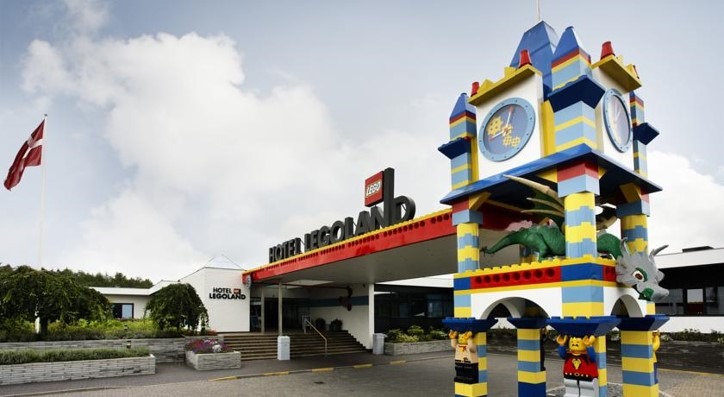

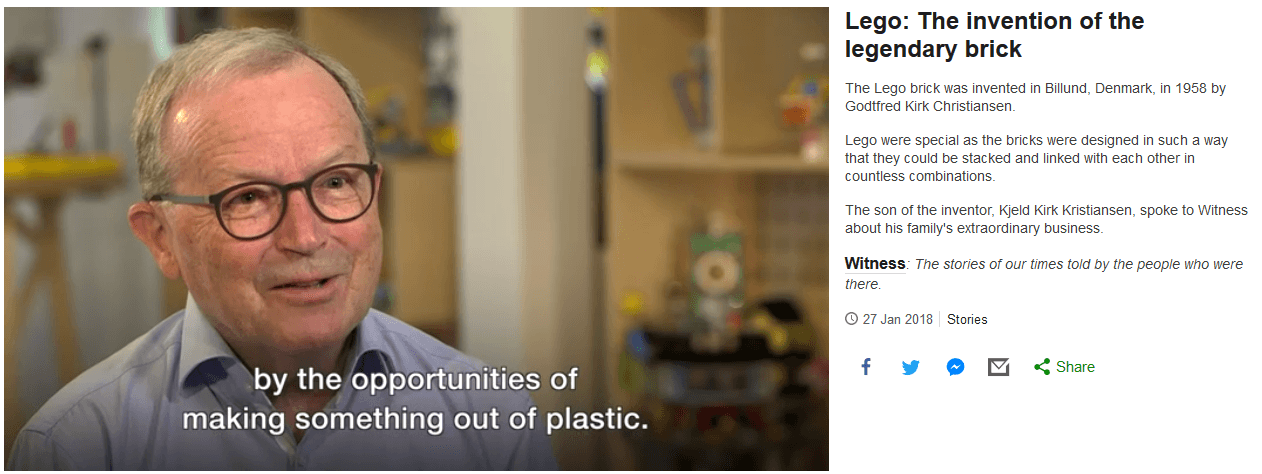
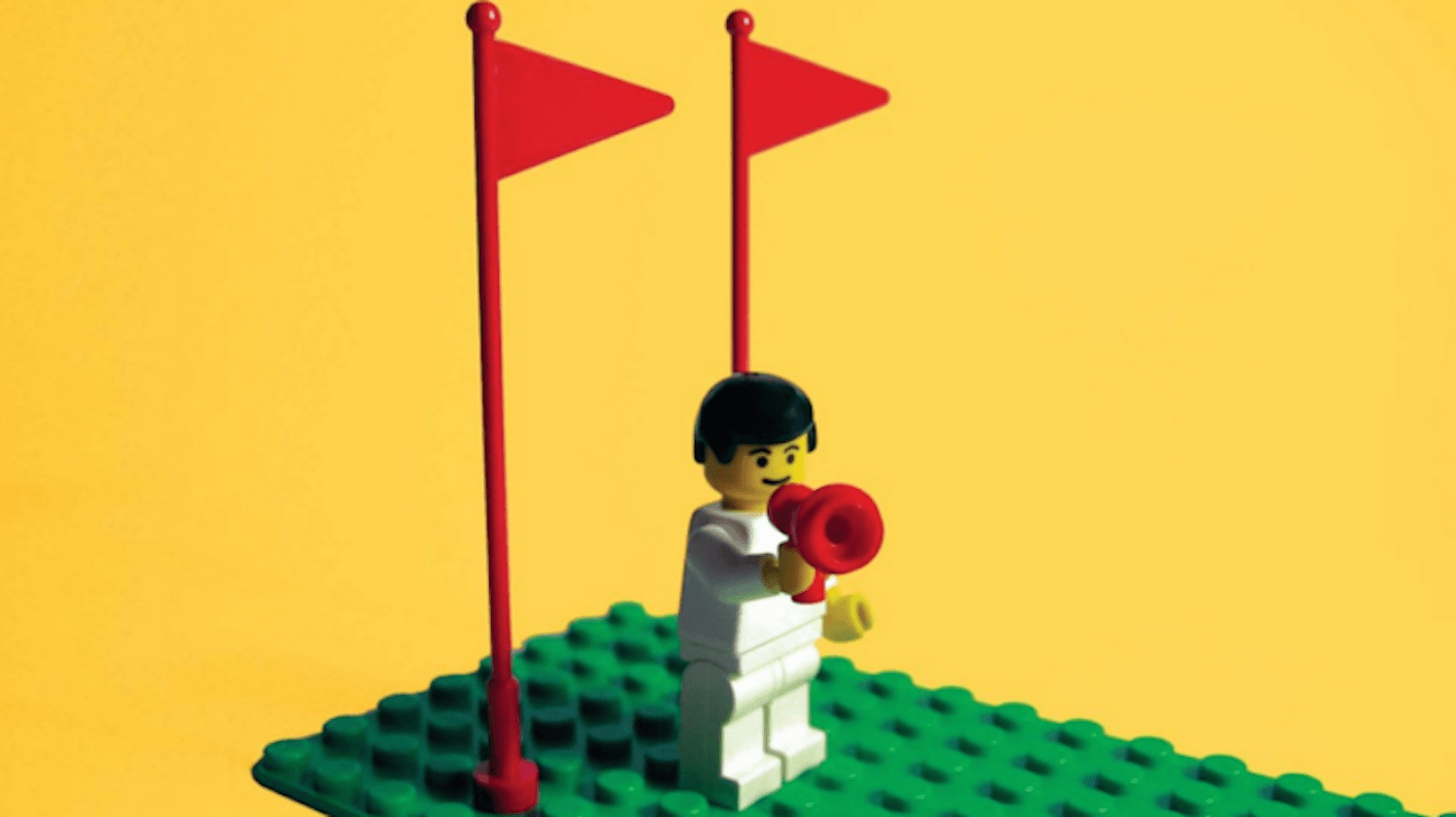
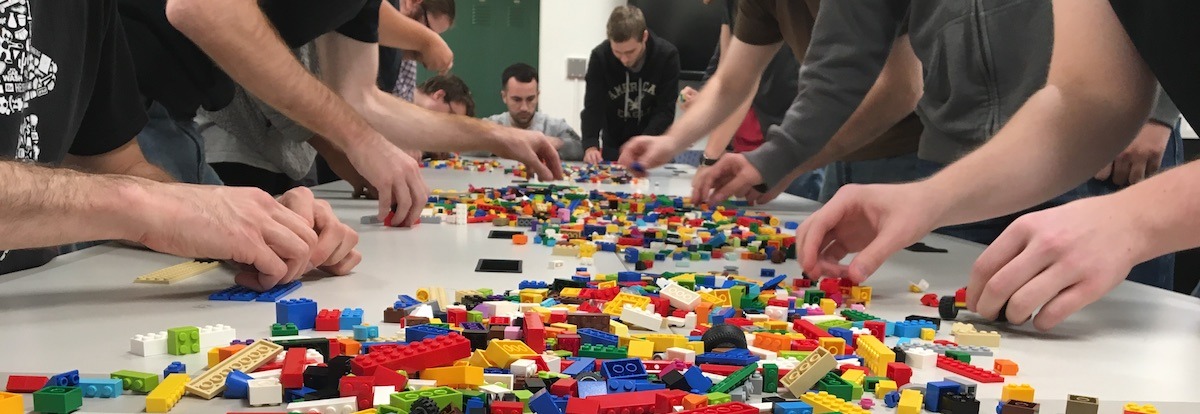
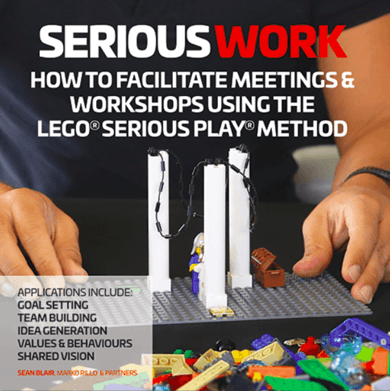
 Become a LEGO Serious Play facilitator - check one of the upcoming training events!
Become a LEGO Serious Play facilitator - check one of the upcoming training events!